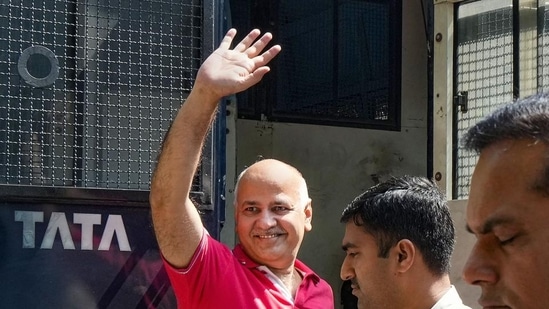In a significant development, the Supreme Court of India granted bail to Aam Aadmi Party (AAP) leader and former Delhi Deputy Chief Minister Manish Sisodia on August 9, 2024. This decision comes after Sisodia spent over 17 months in custody, facing charges of corruption and money laundering related to the Delhi excise policy case.
Background of the Case
The Delhi excise policy case has been a high-profile matter involving allegations of irregularities and corruption in the formulation and implementation of the excise policy. The Central Bureau of Investigation (CBI) and the Enforcement Directorate (ED) had arrested Sisodia in early 2023, accusing him of being a key player in the alleged scam. The case has seen numerous twists and turns, with Sisodia consistently denying any wrongdoing and claiming that the charges were politically motivated.

Supreme Court’s Decision
The Supreme Court’s decision to grant bail to Sisodia was based on several key factors. The bench, comprising Justices B.R. Gavai and K.V. Viswanathan, noted that Sisodia had been deprived of his right to a speedy trial. The court emphasized that the principle that “bail is the rule, jail is the exception” should be upheld, especially in cases where the trial is delayed.
The court also dismissed the prosecution’s argument that Sisodia was responsible for the delay in the trial. Instead, it pointed out that the trial court and the High Court should ensure that cases seeking bail do not unnecessarily reach the Supreme Court.
Conditions of Bail
While granting bail, the Supreme Court imposed certain conditions on Sisodia. These include surrendering his passport, not leaving the country without prior permission from the court, and cooperating fully with the investigation. Additionally, Sisodia is required to report to the CBI and ED offices as and when required.
Reactions to the Verdict
The Supreme Court’s decision has elicited strong reactions from various quarters. The Aam Aadmi Party hailed the verdict as a “victory of truth” and a “slap on dictatorship.” AAP leaders, including Delhi Chief Minister Arvind Kejriwal, expressed their satisfaction with the decision, stating that justice had finally been served.
On the other hand, the Bharatiya Janata Party (BJP) maintained that getting bail does not equate to acquittal. BJP leaders emphasized that the legal process would continue and that the charges against Sisodia were serious and needed to be addressed in court.
Political Implications
The bail granted to Manish Sisodia is likely to have significant political implications. As a key leader of the AAP and a close aide of Arvind Kejriwal, Sisodia’s release is expected to bolster the party’s morale. It also comes at a crucial time, with several state elections on the horizon and the general elections scheduled for 2024.
The case has also highlighted the ongoing tussle between the AAP and the BJP, with both parties accusing each other of using investigative agencies for political gains. The Supreme Court’s decision may further intensify this political battle as both sides prepare for the upcoming electoral contests.
Legal Perspective
From a legal standpoint, the Supreme Court’s decision underscores the importance of the right to a speedy trial and the principle that bail should be the norm rather than the exception. Legal experts have welcomed the verdict, noting that it reinforces the judiciary’s role in upholding individual rights and ensuring that justice is not delayed.
Conclusion
The granting of bail to Manish Sisodia by the Supreme Court marks a significant development in the Delhi excise policy case. While the legal proceedings are far from over, the decision has provided a moment of relief for Sisodia and his supporters. As the case continues to unfold, it will undoubtedly remain a focal point of political and legal discourse in India.
The coming months will be crucial in determining the future course of this high-profile case and its impact on the political landscape of the country. For now, Manish Sisodia’s release on bail is a reminder of the enduring principles of justice and the rule of law in India’s democratic framework.
For More News Update Follow Read Now News
